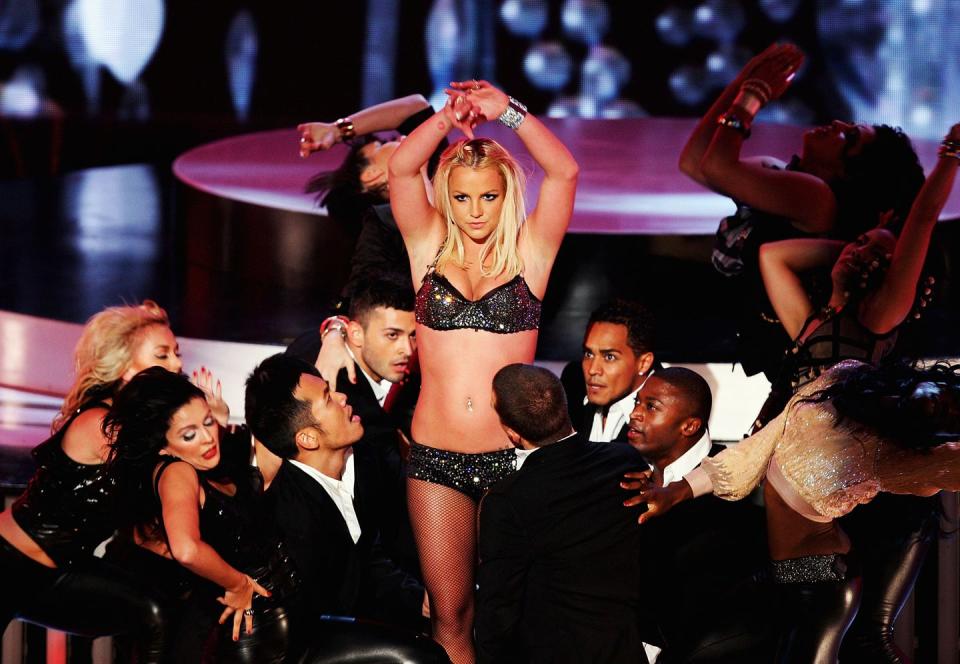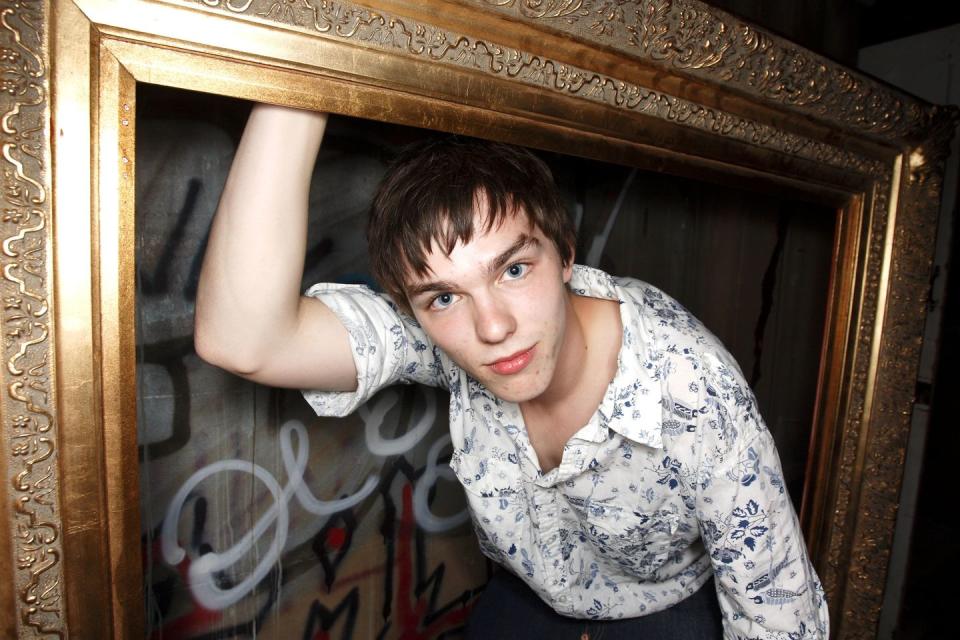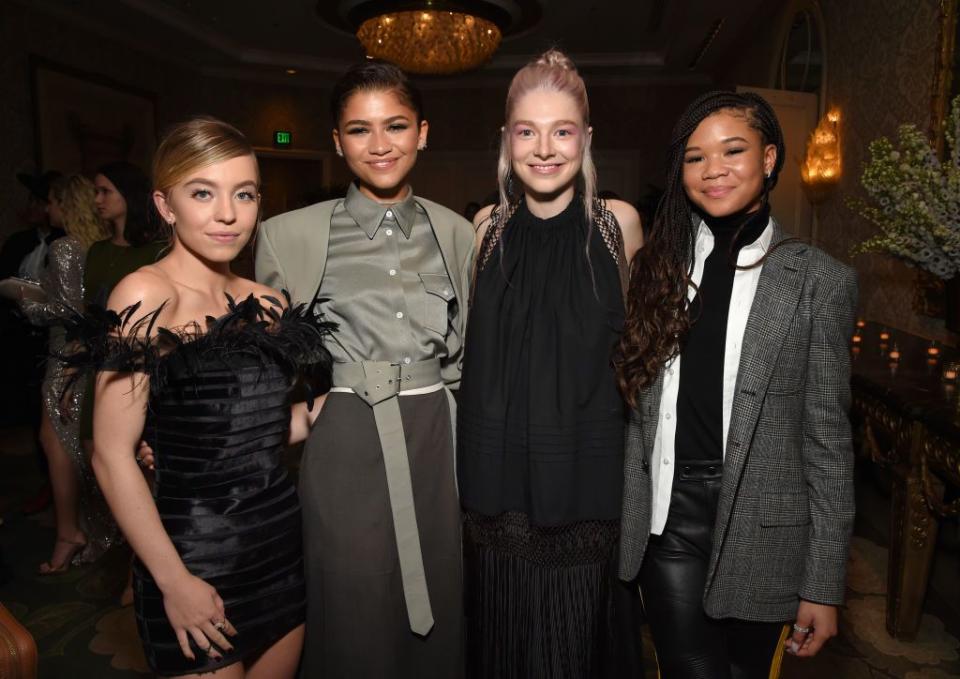Pop Culture, Self-Destruction and Power: The Dark Side Of Nostalgia Culture

We are living in a time of global uncertainty. The world has changed irrevocably since the beginning of the Covid-19 pandemic and current news cycles detail the effects of climate change, the cost-of-living crisis, energy shortages, the death of Queen Elizabeth II and the Russo-Ukrainian war. Fashion trends respond to our environment and consequently runways in recent years have been awash with bright waves of nostalgia, reflected in the recent resurgence of the Y2K aesthetic. In an age of social unrest, the allure of a more carefree time is understandable. Low-rise jeans, Von Dutch caps, bandanna crop tops and micro skirts have made a comeback. Gen-Z have heralded the return of ‘indie sleaze’, a chaotic, dishevelled era which developed in reaction to the slick celebrity culture of the early 2000s, when American Apparel disco pants, rosary beads, backcombed hair and smudged eyeliner were the norm.
Yet, I grew up during the first iteration of these trends and the rose-tinted memory of those years makes me feel uneasy. British teenagers in the early 2000s came of age in the wake of failed Blair optimism and on the cusp of political austerity. This era was characterised by the boom of the internet, indie rock and celebrity gossip, fuelled by paparazzi and tabloid magazines. It was a culture defined by thinness and self-destruction, which have left dark traces in my adult life.

Glamorising a time which thrived on chaos and superficiality has its own dangers. During the 2000s we were taught to aspire to wealth and fame, disregarding the impact of these values on our bodies, finances and mental health. The ascent of reality TV bolstered the cult of celebrity; we watched wealthy socialites Paris Hilton and Nicole Richie struggle with manual, low-paid jobs in The Simple Life, without class commentary. They travelled around the US seemingly wreaking havoc on the lives of working people for entertainment, while they didn't need to work for money, due to their inherited wealth. We laughed along at their blatant disregard for their employers and their inability to support themselves, yet the butt of the joke was surely the working class; it seemed funny to us that these elite women might find themselves working on a dairy farm or making sausages, professions which were so clearly beneath them. The Simple Life openly celebrated elite privilege and widened the divide between wealthy celebrities and the viewers who coveted their luxurious lifestyles. In response to criticism of her time on the show and referring to her 'character' on the programme, Hilton told PEOPLE in 2020: 'I knew what I was doing but the whole world didn’t, so it was kind of frustrating to me to be perceived in that way because it’s not who I am at all. But it was such an amazing and entertaining show that I would just think of it as entertainment.' TV shows like The O.C., The Hills, Laguna Beach and The Kardashians purported material aspirations, driving teenage desires for designer clothes and handbags, luxury cars and cosmetic surgery.



In the later Noughties, we sneered at Britney Spears’ public breakdown, after years of vilification by the press, gawping as she shaved her head in front of paparazzi in an attempt to gain a sense of control over her image. Recent documentary, Framing Britney Spears (2021) and the #FreeBritney movement have since exposed the huge pressures Britney was under at the time, resulting in a restrictive legal conservatorship, which gave her father control over her life and estate for 13 years, until the arrangement was terminated in 2021. Britney has recently spoken about the reality of those years through her Instagram account, telling fans: ‘During my conservatorship I was controlled and monitored for nearly 15 years. I needed permission just to take Tylenol.’ In 2007, everyone laughed at Britney; public breakdowns and eating disorders were commonplace but mental health, wellbeing and autonomy were not part of the cultural conversation.
I turned 15 as the 2007 financial crash marked the beginning of funding cuts across the UK and the subsequent spirit of rebellion set my teenage years alight. Indie culture flourished in resistance to the groomed Y2K aesthetic of the early Noughties; we shunned Juicy Couture tracksuits for gold lamé leggings, leather jackets with unbrushed hair and sequin headbands. It was the era of disorder and destruction; ‘heroin chic’ was in and images of Kate Moss, in her long leather boots were splashed across the tabloids. Many of my friends and I memorised her mantra: ‘Nothing tastes as good as skinny feels.’ In 2022, after years of Covid restrictions, perhaps the abandon of those sticky years is appealing. Our lives have been tightly controlled and monitored, which could make that wild era appear to be comparatively free. Yet, have societal values progressed since the early 2000s? What does this recent nostalgia reflect about culture today?

Legendary Channel 4 TV show Skins was the zeitgeist of my formative years – and a clear example of the complications we run into when glorifying nostalgia. Teenagers across the UK trashed houses during drug-addled parties which mimicked the sweaty, heady energy of the show. My friends and I longed to be dreamy, troubled Cassie who was hospitalised with anorexia and epitomised the ‘manic pixie dream girl’ trope whereby female characters are presented as whimsical, eccentric fantasies lacking agency. In 2007, Skins was a sensation, yet by 2022 standards, its representation of mental health, sexuality and gender is flawed. It is important to consider the past through a critical lens, so we can learn from our mistakes. The Skins characters were role models for a generation of young people who did not have the vocabulary to understand societal issues with the depth we perceive them today.
And while nostalgia isn’t always wholly negative - to some, the early 2000s may appear to be a time of relative freedom, before smartphones and social media really took hold - if we allow ourselves to look back fondly, we must be conscious of the dangers of the past. Nostalgia might bring us comfort, but we must not become disillusioned. We must recognise how much progress has been made and consider how far we still have to go.

Fast forward almost two decades and issues such as mental health, gender, sex and relationships are represented with much more diversity. Hit Netflix series Sex Education (2019) prides itself on sex positivity, portraying a wide range of sexualities and gender identities with sensitivity. Meanwhile, the BBC adaptation of Sally Rooney’s bestselling novel Normal People (2021) has been lauded for its realistic depiction of consensual sex and award-winning HBO series Euphoria (2019) tackles opiate addiction, toxic masculinity, sexual objectification and gender identity with honesty and nuance. ‘I feel like my entire life, I've been trying to conquer femininity, and somewhere along the way, I feel like femininity conquered me,’ says actor Hunter Schafer in an episode of the latter, capturing a truth about the performance of feminine identity which has taken me 30 years to unravel. I wonder: Would my life have been different if I had encountered this perspective at 15?


My own friends and I are still dealing with the spectres of our hedonistic teenage years. The troubling stories which came to light during #MeToo reflect the patriarchal culture we grew up in, yet the visibility of these problems suggests that young people today have access to alternative narratives. Stars such as Lana Del Rey and Miley Cyrus have spoken openly about their sobriety following drug and alcohol addictions, in a move towards healthier lifestyles. TV series Pose (2018), which follows the evolution of LGBTQI+ ball culture in 1980s New York, explores the complex intersection of class and race within queer identity. Then there’s Billie Eilish, who released ‘Not My Responsibility’ (2021) in response to the media discourse around her body size. The track is accompanied by a powerful video in which she unzips a black hoodie to expose her skin, looking directly into the camera and asking, ‘Would you like me to be smaller, weaker, softer, taller? Would you like me to be quiet?’
However, while the cultural conversation has progressed, increased visibility doesn’t necessarily signify social change. The recent overturning of the historic Roe v Wade supreme court decision, making abortion illegal across multiple US states, has devastating consequences for millions of women and is an outright attack on bodily autonomy. And while feminism and trans rights are debated in mainstream culture, there is also a devastating backlash: reported hate crimes against trans people increased by 16% last year. What’s more, the rise of online influencer culture purports unrealistic body image and beauty standards; record numbers of young people have been admitted to NHS eating disorder services in the UK, an increase of two thirds since the onset of the Covid-19 pandemic.
While the recent nostalgia for the early 2000s demonstrates a greater awareness of issues such as misogyny, homophobia, racism, classism and toxic body policing, which went largely ignored at the time, society still has far to go. We must look back with caution, rather than blindly seeking the comfort of nostalgia. It’s important to acknowledge the damaging legacy of that time, while fighting to build a better future.
You Might Also Like


